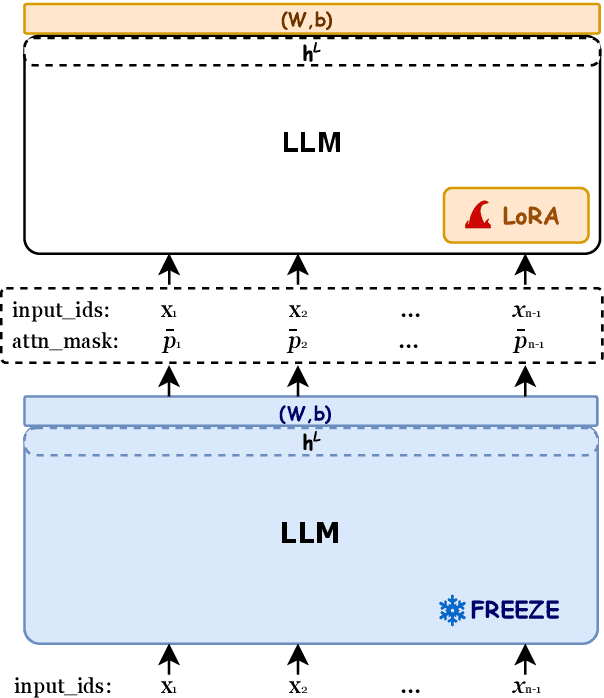Selection-p: Self-Supervised Task-Agnostic Prompt Compression for Faithfulness and Transferability
Paper and Code
Oct 15, 2024



Large Language Models (LLMs) have demonstrated impressive capabilities in a wide range of natural language processing tasks when leveraging in-context learning. To mitigate the additional computational and financial costs associated with in-context learning, several prompt compression methods have been proposed to compress the in-context learning prompts. Despite their success, these methods face challenges with transferability due to model-specific compression, or rely on external training data, such as GPT-4. In this paper, we investigate the ability of LLMs to develop a unified compression method that discretizes uninformative tokens, utilizing a self-supervised pre-training technique. By introducing a small number of parameters during the continual pre-training, the proposed Selection-p produces a probability for each input token, indicating whether to preserve or discard it. Experiments show Selection-p achieves state-of-the-art performance across numerous classification tasks, achieving compression rates of up to 10 times while experiencing only a marginal 0.8% decrease in performance. Moreover, it exhibits superior transferability to different models compared to prior work. Additionally, we further analyze how Selection-p helps maintain performance on in-context learning with long contexts.
 Add to Chrome
Add to Chrome Add to Firefox
Add to Firefox Add to Edge
Add to Edge